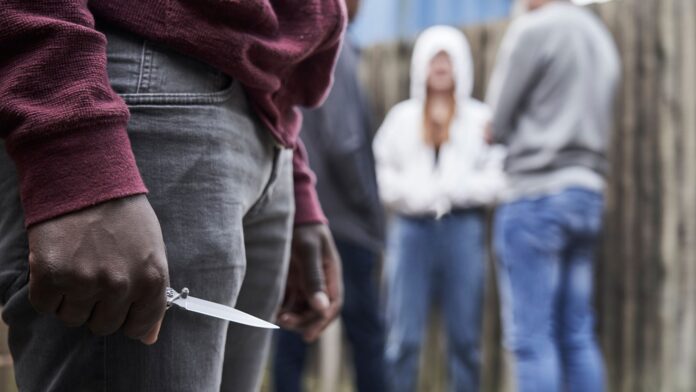

‘Cuckooing’, taking over a house for illegal activity, is heavily connected to modern slavery and drug dealing but too often, current legislation lets criminals get away with it, the Centre for Social Justice (CSJ) and Justice and Care say in new report titled Cuckooing: the case for strengthening the law against slavery in the home.
In a bold attempt to tackle criminal house grabs affecting hundreds of victims across the UK, a leading think tank and slavery charity have urged the Government to sharpen the modern slavery law and reel in abusers.
Noting the presence of over a thousand operational drug county lines, the CSJ and Justice and Care warn that hundreds of vulnerable victims are suffering from ‘cuckooing’ – gangs taking over a person’s home and turning it into a den of crime.
The most common form of cuckooing is where drug dealers take over the victim’s home and use the premises to store, prepare or distribute drugs.
Victims of the practice endure severe indignity, insecurity and wrongful intrusion upon their rights to privacy and a home life by the forced occupation of their property by criminal gangs.
Yet the CSJ’s latest report, Cuckooing: A brief examination of the current law and the case for legislative reform says that, although police safeguarding protocols refer to cuckooing, victims are not sufficiently protected by law.
Despite the presence of the Modern Slavery Act, which recognises the criminality of holding another ‘in servitude’, the Crown Prosecution Service (CPS) is regularly refusing to charge individuals under Section 1 of the Act for cuckooing where the facts of the case show mere occupation and not a demand for service of labour.
This means that a criminal gang can take over a vulnerable person’s home, and not be deemed to have placed the legitimate occupier in servitude until they demand some other service or labour.
The CSJ has sought clarification from the Director of Public Prosecutions on this apparent gap in British modern slavery legislation, and recommended that unlawful occupation be added as an additional offence under the Modern Slavery Act.
In an attempt to address this glaring loophole, and assist victims of cuckooing, who are often socially isolated and suffering from mental health issues, the CSJ has recommended that the government amends Section 1 of the Modern Slavery Act 2015 to expressly bring control of cuckooing, so that it reads:
- A person commits an offence if –
…
(c) the person occupies or exercises some substantial control over another’s home in connection with the commission of another criminal offence and the person knows or ought to know that the other person;
i) has not given consent;
ii) is unable to give free and informed consent; or
iii) has withdrawn consent.
The CSJ and Justice and Care’s research included correspondence with the CPS, engagement with frontline constabularies, and analysis of current UK legislation.
Andy Cook, Chief Executive of the Centre for Social Justice said:
“Imagine the horror of having your home forcibly taken over by gangsters and drug dealers. Cuckooing is a growing menace, some 30% of slavery victims in the UK are British nationals. The CSJ’s simple amendment to the Modern Slavery Act will give the police the powers they need and want to help end this brutal enslavement of so many in their own home.”
Christian Guy, Chief Executive of Justice and Care said:
‘We see how terrifying and wrong this so-called ‘cuckooing’ is in our front-line work. It has no place in our society and must be stamped out fast. Our country led the fight against slavery and exploitation before, and we must do it again now on home soil. Stopping these criminals and protecting those they harm in our communities should be our priority, beginning with this proportionate and profound change to the law. There is no time to waste.’
Cuckooing in real life – Anne’s story
Anne is 51 years old, born and raised in West Yorkshire. She had a difficult upbringing and a poor relationship with her mother. From a young age she experienced abusive relationships. Anne got married and had three children, but her husband abused her physically and emotionally. He made her feel worthless and coerced her into taking drugs.
Anne was in a dark and dismal situation when she was found by the police during a week of intensive police action across the country on county lines drug dealing. When the police encountered Anne, it was clear that she was a vulnerable adult cuckooed by a sophisticated gang operating across West-Yorkshire and connected to London.
When the police entered her property, the perpetrator, who was 21 years of age, was lying on the sofa. He was in possession of drugs, weapons and some cash which police found in the flat.
Anne was in a very bad state. She saw the perpetrator as her protector who was “keeping the trouble out of the door”. Yet, he himself punched and smacked Anne, threatening her on multiple occasions. He made Anne become a drug mule for him supplying other dealers, although she was given no money, just some drugs to feed her addiction.
After the arrest, the perpetrator was released on bail. He managed to indirectly exert control over Anne through others. People were turning up at her home and making threats while the investigation continued.

| [donate]
| Help keep news FREE for our readersSupporting your local community newspaper/online news outlet is crucial now more than ever. If you believe in independent journalism,then consider making a valuable contribution by making a one-time or monthly donation. We operate in rural areas where providing unbiased news can be challenging. |


















